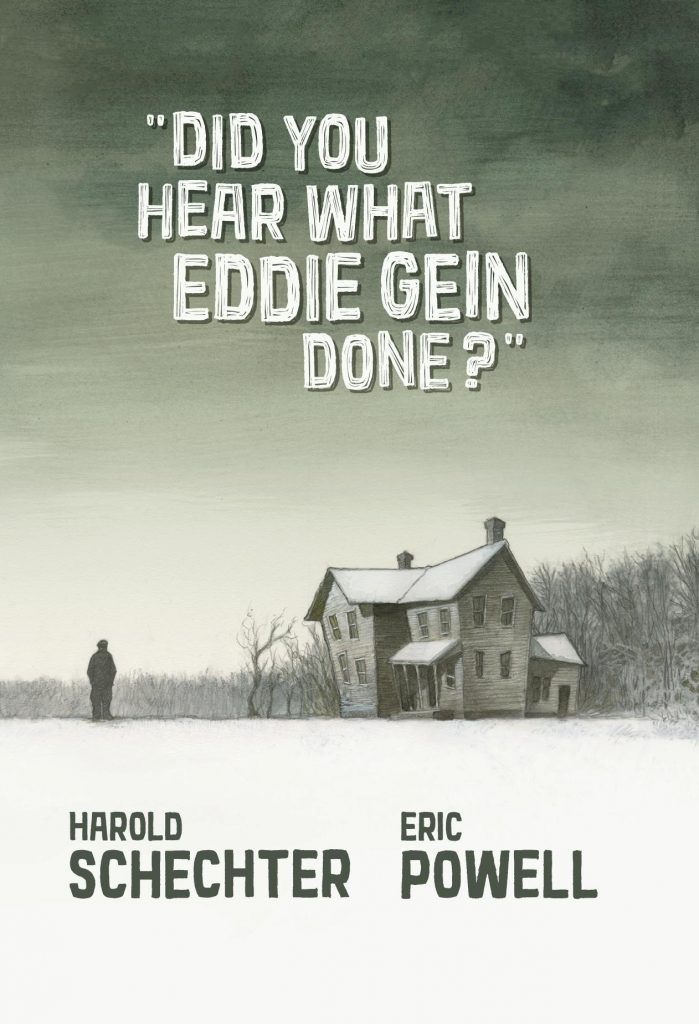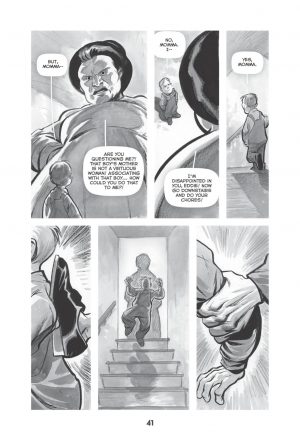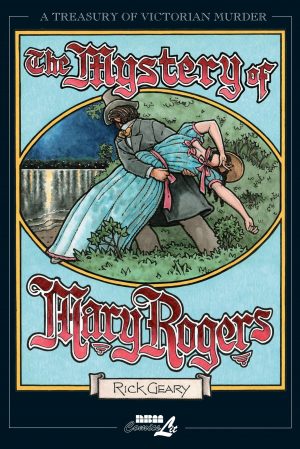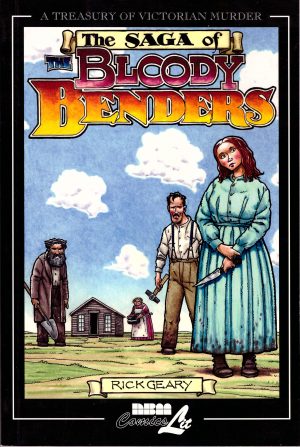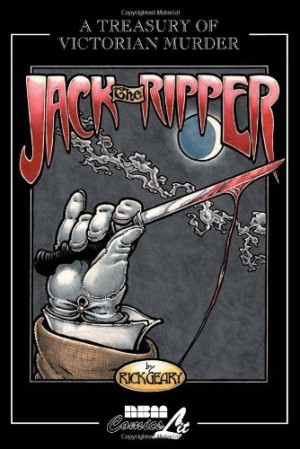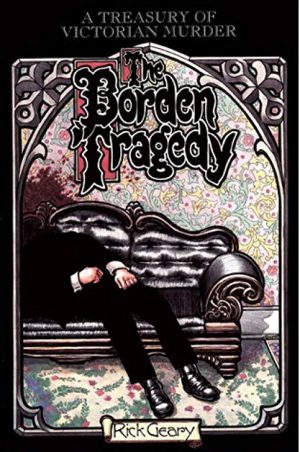Review by Frank Plowright
For those obsessed with the doings of killers Ed Gein’s name is near the top of the list despite only killing two women. His notoriety stems from his other disturbing habits, primarily the desecration of corpses, and that both Robert Bloch’s novel Psycho and Alfred Hitchcock’s subsequent film adaptation were based on Gein’s activities. Further shocking was that his crimes occurred not in the sinful big cities, but in the pleasant rural community of Plainfield in Wisonsin. Gein has also been the subject of numerous biographies, with Harold Schechter’s 1998 Deviant among the more respected, hence his collaboration with Eric Powell.
What distinguishes Deviant from the many lurid and exploitative Gein biographies is that it doesn’t just present the crimes, but attempts an understanding by contextualising him in terms of his background and upbringing. This isn’t an adaptation, but Schechter and Powell draw heavily on Schechter’s earlier work and research to produce a remarkable graphic novel.
Powell’s phenomenal artistic talent is seen early with a family portrait of the Gein family circa 1912. Augusta Gein dominates the portrait as she dominated the lives of her family, her husband George glancing away and both Ed and his older brother Henry crying as they look toward the reader. Augusta’s hardline interpretation of the Bible caused her to see almost every other person as a sinner, and her wish for a daughter rather than a son scarred the young Ed’s upbringing. He witnessed regular fights between his parents, and was brutalised by regular beatings from them in their remote rural home, described by Schechter as being a prison.
In highlighting Gein’s younger life Schechter and Powell achieve the remarkable by presenting a victim who touches hearts, rather than a killer who repels minds. Augusta’s death as portrayed by Powell is a powerful scene, a stroke caused not by her anger about a man beating a dog to death, but because the woman with him was unmarried. She died in 1945 leaving a son approaching forty whose entire life had been one of subjugation and who had no idea of how to cope with the world. Left to his own devices he develops his own twisted moral code, building on his mother’s narrow worldview.
When it comes to the murders Gein committed, they’re treated as procedural investigations, Powell showing us the locals being interviewed and presenting their opinions of Gein. Given the shocking nature of his predilections, it’s almost impossible to present the discoveries in the Gein house as matter of fact, but Powell keeps them toned down, his only recourse to sensationalism being the quotes used to open the chapters. Once the crimes are discovered, Powell switches attention to the Plainfield community, cleverly showing through their statements that had they shared information, a bigger picture would have emerged sooner. As seen in the quoted police interviews, Gein wasn’t entirely guileless, and knew how to muddy the waters.
An insightful final chapter places Gein’s myth in context, noting that prior to the discovery of what he’d done in 1957 all monsters had been foreign, whether actual or fictional, but Psycho’s Norman Bates, based on Gein, introduced the first American equivalent.
This presentation casts Gein as the man he was fashioned as by someone whose standards could never be met, and whose behaviour contradicted her beliefs. “Did You Hear What Eddie Gein Done?” is a trivialising, gossipy title, but the content is a thorough examination of what should be reconsidered as tragedy rather than a vicarious, sensational thrill.
